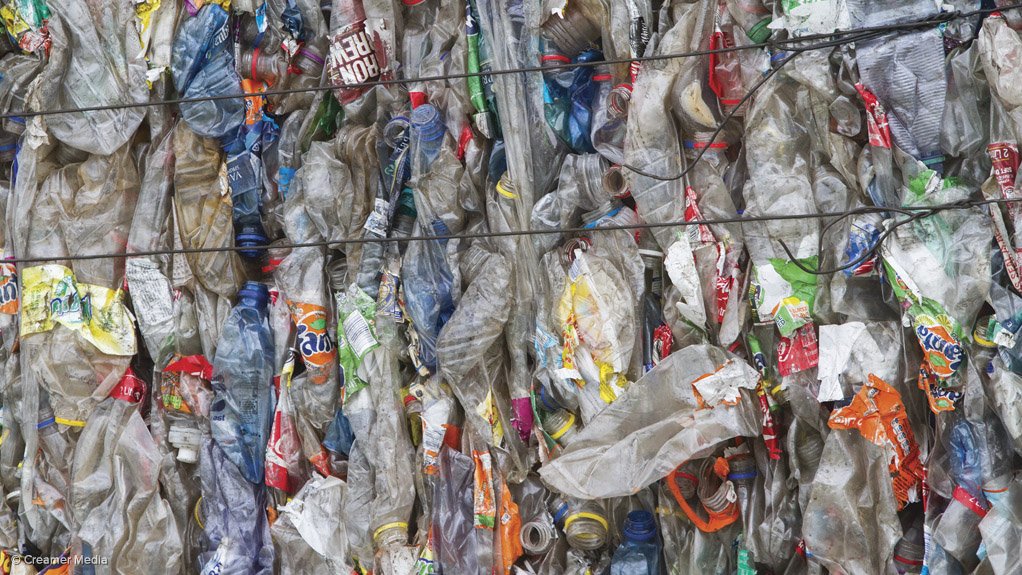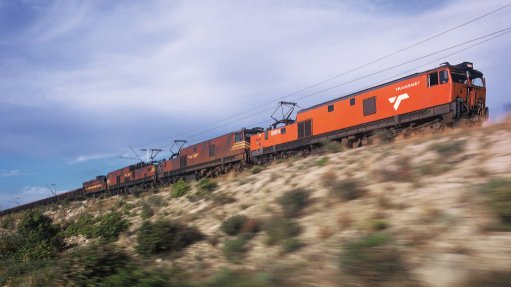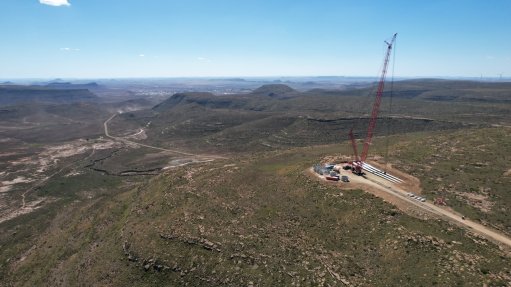Despite no consensus on global plastics instrument, South Africa is making progress – Creecy
While the third meeting of the Intergovernmental Negotiating Committee (INC), held in November, could not reach a consensus on the zero-draft text for a legally binding instrument to coordinate global efforts to end plastic pollution, South Africa continues to make progress in addressing plastic pollution, said Forestry, Fisheries and the Environment Minister Barbara Creecy.
In a speech at the South African Plastic Pact CEO engagement breakfast event, she said that government had put a restriction of a minimum of 50% recycled content as part of the product design measures for plastic carrier bags in 2023, with the intention that by 2027 plastic carrier bags and black refuse bags should be made from 100% recycled material.
“The inability to reach a consensus at the INC-3 in Nairobi is disappointing news and reflects the difficult road which lies ahead for effective action at a global level to combat plastic pollution. I am, however, pleased to say today that through the SA Plastics Pact and other forms of government action, our country is making progress in addressing plastic pollution.”
One of the key obligatory measures proposed by the zero-draft text of the legally binding instrument is the reduction of problematic and avoidable plastic products, including short-lived and single-use plastic products and products with intentionally added microplastics.
Currently, half of all plastic produced globally is designed for single-use purposes – used just once and then thrown away.
“Plastics, including microplastics, are becoming part of the earth's fossil record and a marker of the Anthropocene, our current geological era. They have even given their name to a new marine microbial habitat called the plastisphere. Globally, pressure has been increasing to secure multilateral efforts on tackling plastic pollution,” she noted.
The extended producer responsibility (EPR) schemes were introduced in 2020. Through this approach, the SA Plastic Pact has identified unnecessary and problematic plastic products and is committed to eliminating unnecessary and problematic plastics.
Plastic Pact members have also committed to ensuring that 100% of all plastic packaging is reusable, recyclable or compostable, ensuring that 70% of plastic packaging is effectively recycled, and using 30% average post-consumer recycled content in plastic packaging by 2025, Creecy said.
Further, the EPR Regulations called for schemes for plastic packaging and electrical and electronic equipment amongst other prioritised products. These circular economy and EPR initiatives have resulted in the formation of five registered extended producer schemes that support plastic waste collection and recycling, she said.
“Our EPR Regulations aim to influence product design to take environmental considerations into account, and are currently being implemented for paper, packaging and some single-use products, and lighting, electrical and electronic products.
“These efforts have removed 368 600 t of plastic waste from the environment, supported between 60 000 and 90 000 waste reclaimers and created 7 500 formal jobs,” she highlighted.
The National Waste Management Strategy, adopted in 2020, prioritises three strategies, including to support and strengthen municipal waste management services to prevent plastic leaking into the environment.
It also aims to increase waste diversion from landfill through various approaches including EPR schemes to collect, reuse and recycle plastic waste with the aim of promoting a circular economy in the plastic industry, promote public awareness and clean-up campaigns to remove plastic waste from rivers, wetlands and beaches.
Enforcing compliance is also an area of focus of the strategy, said Creecy.
“Further, because we share industry’s concerns regarding the contribution illegal dumping makes to the leaking of plastics into the environment, we recently launched the Municipal Cleaning and Greening programme. This partnership with provinces and municipalities targets clearing 7 251 illegal dump sites by creating more than 37 000 work opportunities under our public works programme.
“By September 30, we had cleared 1 299, or 19%, of the sites. I am confident that with the acceleration of the cleaning programme, 100% of the identified hotspots will be cleared by the middle of next year. The workers clean daily and educate their communities on how to dispose of waste in a responsible manner,” she said.
Additionally, through the Top 40 programme, government has prioritised 40 municipal landfills for improved compliance through a public-private partnership model currently championed by Infrastructure South Africa, she added.
Further, the Department of Forestry, Fisheries and the Environment, together with the Department of Cooperative Governance and Traditional Affairs and National Treasury, has revised the Municipal Infrastructure Grant Policy so that municipalities can purchase yellow fleet to improve household collection and improve landfill management.
“Since the initiation of this programme, our department has processed applications for specialised waste management vehicles from over 100 municipalities across the country. In the past two years, we have spent over R164-million to buy 44 waste collection vehicles and 21 landfill management waste vehicles for 58 municipalities,” Creecy noted.
Meanwhile, as South Africa's plastics stakeholders collectively assess the contributions voluntary work has achieved, the industry will also need to evaluate the role of regulation and enforcement in taking forward the collective effort to reduce plastic pollution.
“Our experience in the EPR schemes is that the Green Scorpions have an important role to play in targeting free riders and those refusing to comply.
“Going forward, we now know that if we do not address problematic plastic products, they threaten the reputation and hence the future of all plastic products.
“Consequently, we will need regulatory instruments to ensure greater compliance in removing problematic plastics from our ecosystem and ensure those who have refused to join the Plastics Pact also comply with the systematic changes we are trying to implement,” she said.
Comments
Press Office
Announcements
What's On
Subscribe to improve your user experience...
Option 1 (equivalent of R125 a month):
Receive a weekly copy of Creamer Media's Engineering News & Mining Weekly magazine
(print copy for those in South Africa and e-magazine for those outside of South Africa)
Receive daily email newsletters
Access to full search results
Access archive of magazine back copies
Access to Projects in Progress
Access to ONE Research Report of your choice in PDF format
Option 2 (equivalent of R375 a month):
All benefits from Option 1
PLUS
Access to Creamer Media's Research Channel Africa for ALL Research Reports, in PDF format, on various industrial and mining sectors
including Electricity; Water; Energy Transition; Hydrogen; Roads, Rail and Ports; Coal; Gold; Platinum; Battery Metals; etc.
Already a subscriber?
Forgotten your password?
Receive weekly copy of Creamer Media's Engineering News & Mining Weekly magazine (print copy for those in South Africa and e-magazine for those outside of South Africa)
➕
Recieve daily email newsletters
➕
Access to full search results
➕
Access archive of magazine back copies
➕
Access to Projects in Progress
➕
Access to ONE Research Report of your choice in PDF format
RESEARCH CHANNEL AFRICA
R4500 (equivalent of R375 a month)
SUBSCRIBEAll benefits from Option 1
➕
Access to Creamer Media's Research Channel Africa for ALL Research Reports on various industrial and mining sectors, in PDF format, including on:
Electricity
➕
Water
➕
Energy Transition
➕
Hydrogen
➕
Roads, Rail and Ports
➕
Coal
➕
Gold
➕
Platinum
➕
Battery Metals
➕
etc.
Receive all benefits from Option 1 or Option 2 delivered to numerous people at your company
➕
Multiple User names and Passwords for simultaneous log-ins
➕
Intranet integration access to all in your organisation





















